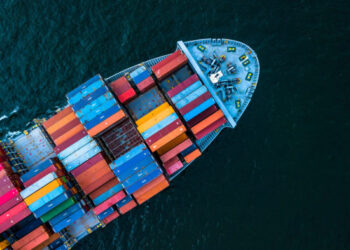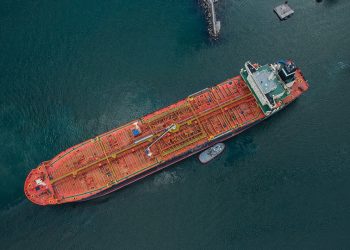Samsa will ask the government to investigate the feasibility of establishing a maritime bank
 The South African Maritime Safety Authority (Samsa) will ask the government to investigate the feasibility of establishing a dedicated maritime bank that would be best placed to understand the specific risks and needs of the shipping sector with the aim of revitalising it, said Samsa’s head of policy and regulatory affairs, Samuel Nkosi.
The South African Maritime Safety Authority (Samsa) will ask the government to investigate the feasibility of establishing a dedicated maritime bank that would be best placed to understand the specific risks and needs of the shipping sector with the aim of revitalising it, said Samsa’s head of policy and regulatory affairs, Samuel Nkosi.
The authority would seek a meeting with the Treasury and the National Planning Commission in the next two to three months to “sell the idea” of the creation of a bank dedicated to development and financing of shipping and related industries, Mr Nkosi said last week.
SA wants to revitalise its maritime sector since despite being rated 30th out of 162 maritime nations, the country has no ships that operate under its flag.
The proposed bank would follow the land Bank’s model, Mr Nkosi said. The Land Bank, which lends money and provides support to farmers and agribusiness, granted loans to farmers on terms that were sympathetic to the commercial and production needs faced by the sector, he said.
In addition, the government should “speed up all reviews of the regulatory frameworks that affects” the maritime sector and which were making the sector uncompetitive, Mr Nkosi.
These issues include an uncompetitive taxation framework for the maritime sector, unattractive policies regarding ship insolvency and labour and taxation policies which affect crewing and the employment of skilled seafarers.
The development of SA’s maritime industry would require assistance and interventions from the government to improve the regulatory environment and make it an attractive sector for investment, said Samsa’s CEO, Cdr Tsietsi Mokhele.
SA’s annual sea-borne trade was about 260-million tons last year, a figure described as “massive”.
The scale of these volumes should be sufficient to allow companies to borrow money to finance the acquisition of vessels. About 98% of SA’s imports and exports rely on shipping.
SA needed to have a registry that was healthy, owned by South Africans and beneficial to the economy, with vessels that could act in support of the navy, Cdr Mokhele said.
The creation of a national fleet, not in the context of a state-owned shipping company, but rather as a fleet of vessels that operate under the SA flag, was of strategic importance to the country, he said.
The state has a role to play, he said, but this should not be larger than a 25% interest of the total shipping industry, he said.
Source: Business Day






























































